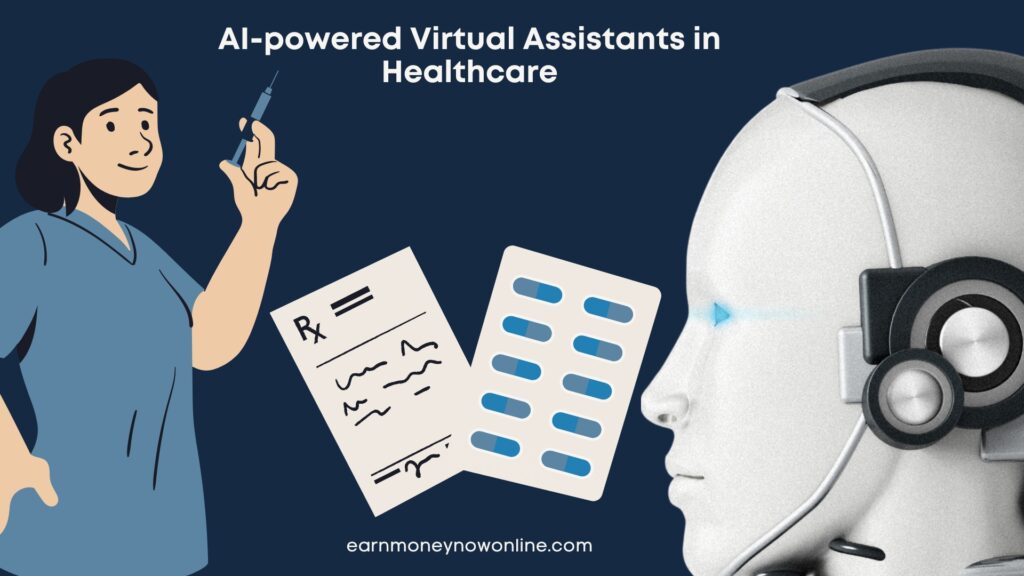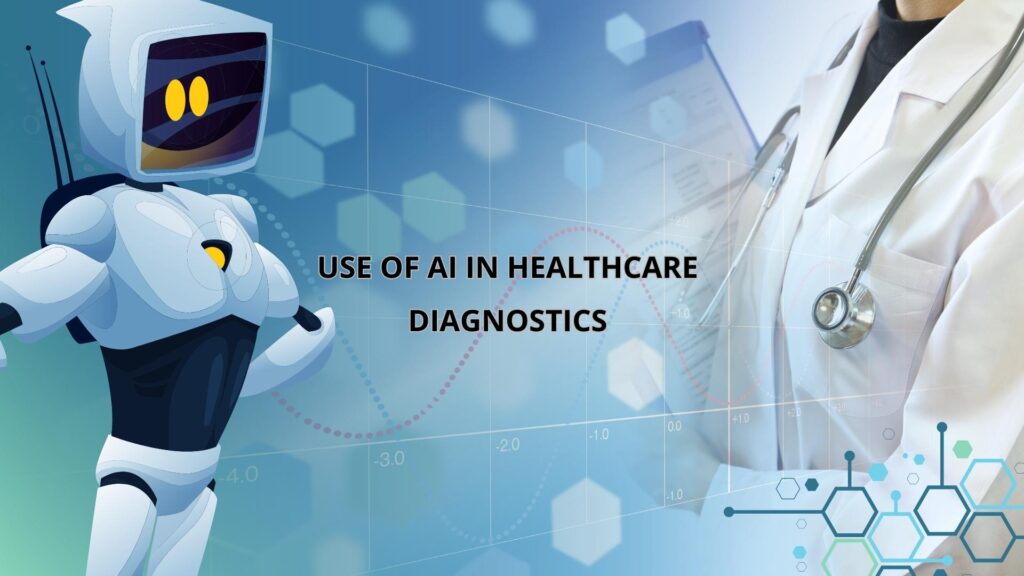Artificial Intelligence (AI) has revolutionized various industries, and healthcare is no exception. The integration of AI technology in healthcare systems has led to significant advancements in diagnosis and treatment procedures. With its ability to process vast amounts of data and identify patterns, AI has the potential to enhance medical outcomes, improve patient care, and transform the healthcare landscape as we know it. Let’s explore the transformative potential and use of AI in healthcare diagnostics in this blog.
Introduction
AI refers to the simulation of human intelligence in machines that can learn, reason, and make decisions. In healthcare, AI is employed to analyze medical data, recognize patterns, and provide insights that assist healthcare professionals in making accurate diagnoses and treatment decisions. By combining AI with medical expertise, healthcare providers can offer more personalized care and improve patient outcomes. Some people say AI is a threat to humans. But if used in a good way, AI can actually be very helpful in saving time and maximizing productivity.
The Role and use of AI in healthcare diagnostics
Accurate and timely diagnosis is crucial for effective healthcare interventions. AI algorithms can analyze a vast array of patient data, including medical records, lab results, and imaging scans, to identify patterns that may not be easily detectable by human clinicians alone. This enables early detection of diseases, improves diagnostic accuracy, and allows for prompt intervention and treatment planning.

Precision Medicine and AI
Precision medicine aims to tailor medical treatments to individual patients based on their genetic makeup, lifestyle, and environmental factors. AI plays a vital role in precision medicine by analyzing complex genetic data and identifying specific biomarkers associated with diseases. This enables healthcare providers to offer targeted therapies and medications, leading to more effective treatments with fewer side effects.
AI-assisted Imaging and Radiology
AI-powered imaging and radiology systems have transformed the field of medical imaging. Machine learning algorithms can analyze medical images such as X-rays, MRIs, and CT scans, detecting abnormalities and providing accurate interpretations. This not only speeds up the diagnosis process but also enhances the accuracy of identifying diseases like cancer, heart conditions, and neurological disorders. This YouTube video explains the use of AI in healthcare diagnostics in a very good way.
AI-driven Drug Discovery
Developing new drugs is a time-consuming and expensive process. AI has the potential to revolutionize the drug discovery process by rapidly analyzing vast amounts of scientific data and identifying potential drug candidates. Machine learning algorithms can predict the efficacy and safety of drugs, significantly reducing the time and cost required for drug development.
AI-powered Virtual Assistants in Healthcare
AI-powered virtual assistants, such as chatbots and voice recognition systems, have become increasingly popular in healthcare settings. These virtual assistants can interact with patients, answer their questions, provide basic medical advice, and even schedule appointments. They offer round-the-clock assistance, helping to alleviate the burden on healthcare providers and enhance the patient experience.

Ethical Considerations in AI Adoption
As AI continues to advance in healthcare, ethical considerations must be addressed. Privacy concerns, data security, algorithm bias, and accountability are crucial factors to consider. Transparent and responsible AI development practices are essential to ensure patient privacy, maintain trust, and mitigate potential biases that could impact patient care.
The Future of AI in Healthcare
The future of AI in healthcare holds immense potential. Advancements in AI technology, coupled with increasing access to large datasets, will further enhance
diagnosis accuracy, treatment effectiveness, and patient care. AI-driven innovations, such as wearable devices and remote patient monitoring, will enable proactive and personalized healthcare delivery, leading to better health outcomes for individuals and populations.

Conclusion
AI is transforming the landscape of healthcare by revolutionizing diagnosis and treatment processes. With its ability to analyze vast amounts of data, identify patterns, and provide insights, AI offers healthcare professionals powerful tools to improve patient care, enhance diagnosis accuracy, and develop personalized treatment plans. However, ethical considerations and responsible AI development practices are crucial to ensure the safe and effective adoption of AI in healthcare.
FAQs
1. Can AI completely replace human healthcare providers?
No, AI is designed to augment human healthcare providers rather than replace them. It serves as a tool to assist in diagnosis, treatment planning, and patient care.
2. What are some potential challenges in adopting AI in healthcare?
Challenges include data privacy concerns, algorithm bias, regulatory compliance, and the need for proper training and integration of AI technologies into existing healthcare systems.
3. How does AI contribute to patient-centered care?
AI enables personalized medicine by analyzing individual patient data, leading to tailored treatment plans that address specific patient needs and improve health outcomes.
4. Is AI only applicable to large healthcare organizations?
No, AI can benefit healthcare organizations of all sizes. The scalability and affordability of AI technologies make them accessible to a wide range of healthcare providers.
5. How can AI improve patient outcomes?
AI enhances patient outcomes by enabling early disease detection, improving diagnosis accuracy, facilitating precision medicine, and providing personalized treatment plans.
In conclusion, AI is rapidly transforming the field of healthcare, revolutionizing the way diagnoses are made and treatments are administered. With its ability to analyze vast amounts of data, AI empowers healthcare professionals to provide more accurate diagnoses, develop personalized treatment plans, and enhance patient care. However, responsible AI development and ethical considerations are paramount to ensure the safe and effective implementation of AI in healthcare. Embracing AI in healthcare holds immense promise for improving patient outcomes and advancing medical knowledge.




















